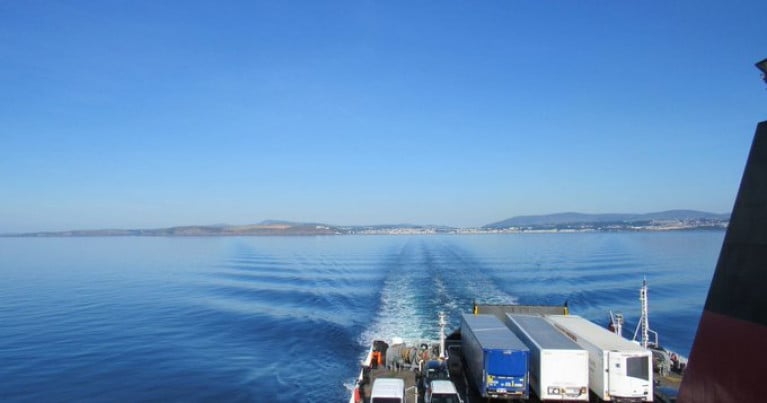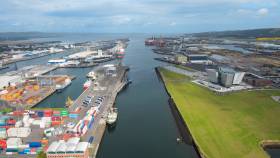Displaying items by tag: CEO to retire
Senior figures in the Isle of Man Steam Packet Co.,who between them have amassed more than half a century of dedicated service to the Manx ferry company are to retire later this year.
Chief Executive Officer Mark Woodward and Commercial Director John Watt will both stand down from their roles in July 2021.
Well-respected by colleagues ashore and afloat, they have collectively chalked up 58 years during which time they have overseen a number of changes, including the acquisition of the IOM Steam-Packet by the Manx government and managing the detailed operation to secure a new purpose-built vessel, which is due to come into service in 2023.
Mark Woodward joined the Company in 1989 as Management Accountant, moving to Operations in 1995. He succeeded the late Hamish Ross as Chief Executive Officer in 2007.
At the helm for the past 14 years, during which time the Company has gone from strength-to-strength, his extensive knowledge and experience have proved invaluable, creating a strong long-term platform to deliver continued investment in sea services that meets the needs of the Island.
He commented: ‘I have been contemplating retirement for a year or so now. While I was pleased in December to be asked to stay for a few more years, ultimately the glimpse of freedom offered by working from home last year led to my final decision. I have steered the Company through both calm seas and choppy waters for 14 years now and I am happy it will be in safe hands under the Chairmanship of Lars Ugland.
‘I will, of course, miss all my colleagues and the camaraderie in the office. It has been a genuine pleasure and an honour to work for such a vital and historic Company.’
John Watt moved to the Company in 1995 and joined the Board of Directors eight years later. During his tenure, the number of passenger sailings have more than doubled, while average fares paid have halved in real terms.
He said: ‘It has been a privilege to serve this great Company over a fascinating period in its long history. In that time, fast craft has replaced conventional tonnage in some areas, special offers rather than standard fares have become the norm, the number of Liverpool services has virtually trebled and Heysham passenger services have doubled. It has been a real pleasure working for such an important Company and with such friendly and professional colleagues.’
Chairman Lars Ugland added: ‘I’d like to place on record our gratitude for both Mark and John’s long service and acknowledge the fine contribution they have made.
‘Under Mark’s leadership, the Company has made great strides to provide what is best for our Island, stabilising the long-term future of sea services for the Isle of Man and its people.
‘His quick intelligence, huge experience, sense of humour and loyalty have made him an excellent Chief Executive and he has offered a constant wise counsel, always with the best interests of the Company and the Isle of Man at heart. He will be much missed by me, the staff and the Board.
‘Likewise, John’s diligent and efficient manner has served us well and he too will be greatly missed, both on a personal level as well as for his contribution to the Company's success.’
Belfast Harbour Confirm CEO to Retire Next Year
#PortCEO - Belfast Harbour have confirmed that CEO, Roy Adair CBE is to retire from the Port business in the Spring of 2018.
The CEO has for more than 12 years presided over an extremely successful development phase of Belfast Harbour delivering 12 consecutive years of growth. During this time the business has diversified through investment in both Port and Property activities.
Since 2005 Belfast Harbour has invested almost £250m in capital projects. This has included the single biggest capital investment the Port has ever made in the form of the £50m wind turbine D1 Renewable Energy Terminal.
During Adair's period in charge of the business he has overseen continued growth in Port trade activities and the expansion of the property side of the business which has seen the City Quays development emerge. The waterfront developement is delivering much needed Grade ‘A’ office space and hotel rooms for Belfast and the regional economy.
The Harbour has also invested in new and emerging industries exemplified by the recent completion of the £20m Belfast Harbour Studios making Northern Ireland the best catered for UK region in film production after London.
In addition to this the CEO has held a number of non-executive roles locally, nationally and internationally including Chairman of Business in the Community and serving as Prince Charles’ Ambassador for Social Responsibility.
The port has now started the process to appoint a successor for the role of CEO with adverts in local and national press.

























































